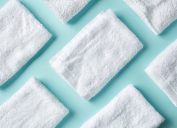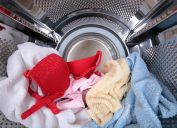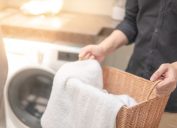What Happens If You Wear the Same Gym Clothes Without Washing Them
This seemingly harmless habit can be problematic.
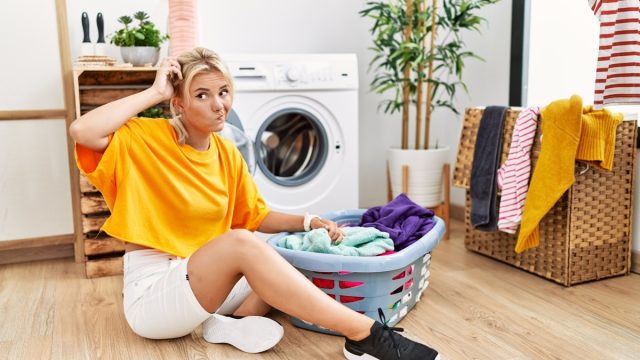
When you realize that you forgot to do laundry and you're out of workout clothes, you might be tempted to re-wear an outfit from your last sweat sesh—but before you do, it's important to know the potential consequences.
When you exercise, your clothes absorb sweat and bacteria, explains Danielle Kelvas, MD, a medical advisor for Speediance. That means when you wear the same clothing again, you're re-exposing your skin to that bacteria—which can, in turn, cause a slew of health issues. For this reason, Kelvas strongly advises washing your sports bras, leggings, shorts, and other fitness apparel after every use.
Still not convinced? Read on to find out more about the potential risks that come with re-wearing those gym clothes.
READ THIS NEXT: What Happens If You Don't Shower for a Month, According to Doctors.
You might notice a foul odor.
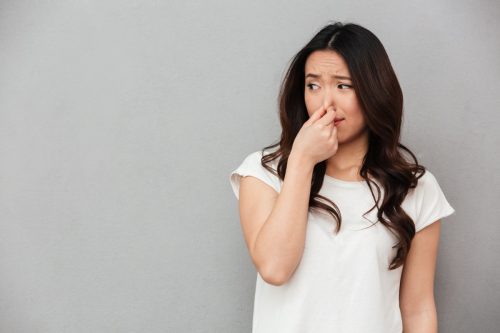
This should go without saying, but if you wear the same gym clothes again after a grueling workout, they'll probably give off a pretty nasty smell.
"Bacteria thrive in warm, damp environments, and gym clothes provide the perfect breeding ground," says Yoram Harth, MD, a board-certified dermatologist and Medical Director of MDacne. "This is why unwashed gym clothes can develop a strong, unpleasant odor. To prevent this, wash gym clothes after every wear using a detergent that is specifically designed to eliminate
odor."
You'll have an increased risk of certain infections.
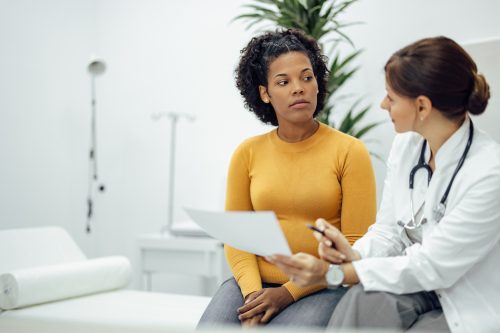
"Bacteria and fungus thrive in moist environments, such as sweaty gym clothes, and can lead to infections such as ringworm, athlete's foot, or staph infections," warns Ahmad Nooristani, MD, CEO of Balance 7. "These infections can be a task to treat and can result in further complications."
Speaking of infections—yeast from your skin can also build up on your gym clothes after you wear them. That means you might be more prone to yeast infections when you use them again without washing them. This is especially true for pieces that come in contact with your crotch, like shorts or leggings, says Kelvas.
"Even low-impact exercise like yoga can leave yeast and bacteria on your clothes," she adds.
READ THIS NEXT: What Happens If You Don't Wash Your Hair for a Week, According to Doctors.
Your skin might get irritated.
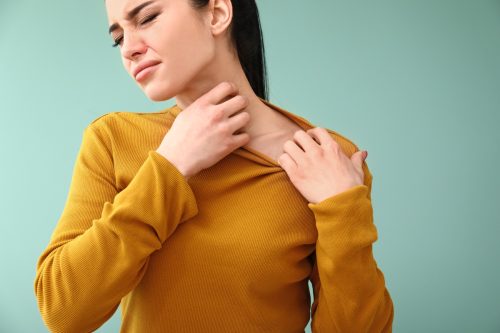
Don't be surprised if your skin gets red and/or itchy after wearing the same gym clothes for a second—or third—time.
"Bacteria, fungi, and yeast that accumulate on the fabric, of your gym clothes—and then sweat, body oils, and dirt act as nutrients for these microorganisms, allowing them to grow and multiply quickly," says Alberto de la Fuente Garcia, MD, a board-certified dermatologist at VIDA Wellness and Beauty. "As they break down sweat and oils, they produce irritating substances that can cause a rash."
To prevent this from happening, Harth says it's a good idea to shower immediately after working out—in addition to washing your exercise clothes after every wear.
For more health news sent directly to your inbox, sign up for our daily newsletter.
You could experience breakouts.
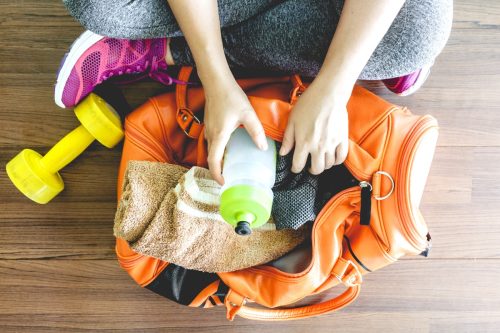
Another reason to think twice about re-wearing those gym clothes? Doing so could trigger unsightly breakouts, according to Enrizza P. Factor, MD, a board-certified dermatologist and researcher with My Eczema Team.
Bacteria, oil, and dead skin cells get transferred from your skin to your gym apparel. So, when you wear those clothes again, all of that gunk can get reabsorbed by your skin, clogging and inflaming your pores. For example, re-wearing a tank top or sports bra could lead to chest or back acne. While this can happen to anyone, it's particularly problematic if you have oily or acne-prone skin.
Best Life offers the most up-to-date information from top experts, new research, and health agencies, but our content is not meant to be a substitute for professional guidance. If you have specific health questions or concerns, always consult your healthcare provider directly.
